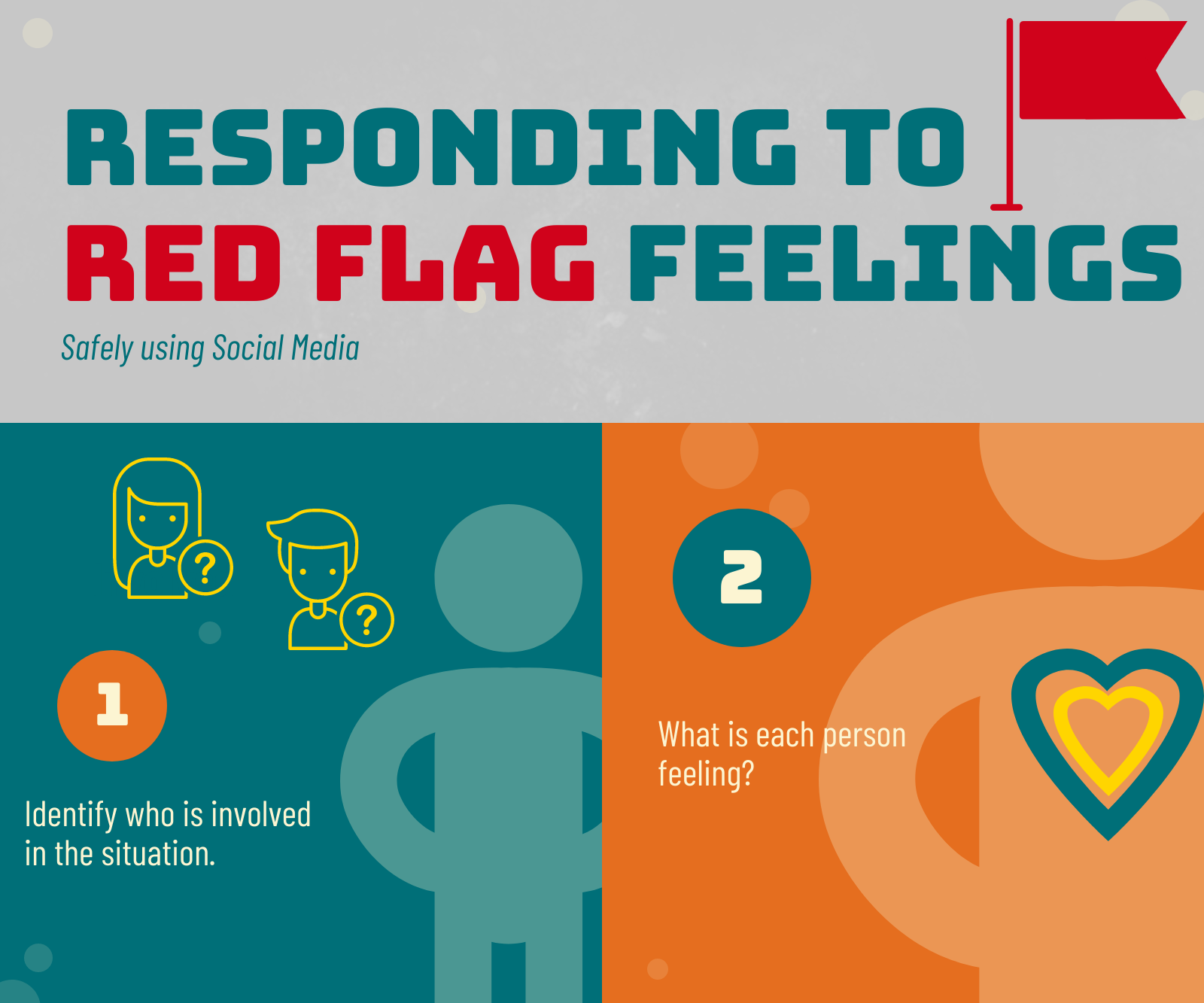“Don’t believe everything you read on the internet just because there’s a picture with a quote next to it.” -Abraham Lincoln.
As of 2023, there are approximately 4.74 billion social media users, inclusive of all age groups. Reports estimate that this number will reach 5.85 billion in the next five years. Considering this data, it won’t be wrong to say that social media platforms have become a significant part of everyday life. From the beginning of the day till the end, individuals constantly scroll through different applications and update their followers about life events.

There is no denying that these applications are a great way to stay in touch with everyone. However, there are two sides to a coin. The ease of communication, interaction, and engagement often leads to severe troubles. These range from (but are not limited to) cyberbullying, sextortion, internet dramas, and toxic culture. These are popularly known as “Red Flags” of social media. Let’s discuss them in detail!
-
Cyberbullying
The US is among the top countries with the highest cyberbullying rate. 95% of teens are online. Among these, 37% of teens (ages 12 to 17) report getting bullied more than once over the internet. Some harassments are so severe that it leads to the fatality of victims.
What Steps To Take?
If you or anyone you know has become a victim of cyberbullying, disclose it to the parents, teachers, school authorities, or police. They will take appropriate action to ensure you are safe and the offender is punished for the wrongdoing. At the same time, you must be vigilant about what you say about someone, as your “humor” might be abusive to others.
- Explicit Content
Sharing explicit content such as videos, photographs, or even texts is pretty common, especially on dating apps. While it brings couples closer to each other, improving their intimacy, sharing or asking for “inappropriate” content can also backfire, especially if the person is underage. It can lead to criminal offenses, namely sextortion and internet solicitation. Moreover, such photographs or videos can get into the wrong hands, causing legal trouble for you.
What Steps To Take?
You must avoid sharing and asking for explicit content, regardless of the fact that you are romantically involved with the person or not. Even if you have such content, delete them from everywhere- including trash cans to avoid data leakage. If you have been falsely accused of sextortion or internet solicitation, work with professional criminal defense attorneys and seek justice. Attorneys are quite familiar with these cases; thus, they know “where it all went wrong?.” So, they can provide you protection from false claims and do what is in your best interest.
- Default “Public” Setting
With the social media influencer culture on the rise, most platforms allow users to keep their accounts public or private. However, a few apps keep some information in a public setting by default. It includes name, bio, photograph, and posts. Due to the advancement in technology, the availability of this basic knowledge is enough for hackers to take control of the profile.

What Steps To Take?
When you install any social media application on your device, make sure to read the terms and conditions of use. Additionally, go to the app settings to change the default settings to private. If you are operating the platform via a browser, change the settings. Even if you wish to keep your account public, you can still ensure privacy by separating the primary and general conversations. Turn on the two-factor authentication and end-to-end encryption to protect the information.
- Chat Rooms
Chat rooms are ideal for interacting with strangers and sharing your viewpoints. You can either drop-in open chat rooms or need the invitation to be part of private conversations. Nevertheless, both rooms carry a certain level of risk. Random people can enter the chat room and cause chaos by giving hate speech or sharing inappropriate content. Tracking such individuals is also pretty challenging as you don’t have precise information about them.
What Steps To Take?
Avoid participating in an open chat room, especially if the topic of discussion could offend you. As for the private rooms, make sure you know every person. If someone talks ill, restrict them. You can create a few rules to ensure that everyone abides by them.
The Bottom Line
The first step to staying protected from these social media flags is by learning about all of them. Only when you are well-versed in the problem can you come up with a possible solution. It doesn’t mean you should avoid using social media; instead, you need to be smart about what you do on these platforms.





